
[vc_row][vc_column][vc_column_text]Human waste has long been a problem at national parks. Visitors on the trail who find themselves hours or days from a running toilet decide to go behind a tree and cover it up with leaves, or dig a hole where there is the least traffic.
However, park rangers who patrol the grounds and meet visitors who are camping, fishing, hiking, or canoeing have come to realize that most people who appear to misbehave inappropriately in nature do so because they’re unaware of the negative impact human waste has on the environment.
Most people assume that peeing or pooping in the wilderness is perfectly natural. Therefore, they do it if there are no running toilets for miles around or when they simply want to avoid porta-potties at all costs.
Because of budget cuts and government shutdowns, porta-potties can go unserviced for weeks or months. That means gallons of porta-potty sewage have been stewing under the sun for days. The smell that is released when you open the door is one thing; imagine entering, closing the door behind you, and staying inside long enough to finish your business.
However, as the waste problem in national parks continues to literally pile up, it’s no longer acceptable for visitors to use ignorance as an excuse. And they also cannot argue that they were left with no choice because the porta-potties are unacceptable.[/vc_column_text][vc_column_text]
Portable Waste Bags offer a simple solution that keeps park visitors from abandoning their wastes in the wilderness and gives them a safer alternative to unhygienic porta-potties.
To lead the change and set an example, park rangers serve as the role models for best practices and national park etiquette. When they pack portable Waste Bags on their patrols, they can educate park visitors about how a portable waste bag system is beneficial for both them and the environment.
Unlike the national park porta-potties, portable Waste Bags don’t expose you to a host of viruses and diseases such as hepatitis A, norovirus, salmonella, and shigellosis. Plus, each bag comes with an antimicrobial wipe to help ensure you don’t contaminate your hands and pass on fecal matter to others.
The Brief Relief Disposa-John Portable Restroom offers park rangers and park visitors a safe, sanitary, and portable solution for their bathroom needs. The patented “bag-n-bag” system traps in the waste and odor. It contains enzymes and polymers that break down both solid and liquid waste, converting it into a deodorized gel.
For added sanitation, each Waste Bag comes with ample toilet paper and antimicrobial wipe that you can throw into the bag before you seal it; it even handles feminine hygiene products. Because of its sturdy triple-layer barrier bag design, you can roll it up and stow away in your backpack without fear that they will leak. Brief Relief wag bags are also puncture-resistant and have passed numerous drop tests. Used wag bags are land-fill safe and can be thrown away in any regular trash bin.[/vc_column_text][vc_separator][/vc_column][/vc_row][vc_row][vc_column][vc_column_text]National park bathroom etiquette is essential for the safety of precious environments, check out our portable Waste Bags to see how Brief Relief is making a difference in national parks.[/vc_column_text][/vc_column][/vc_row]
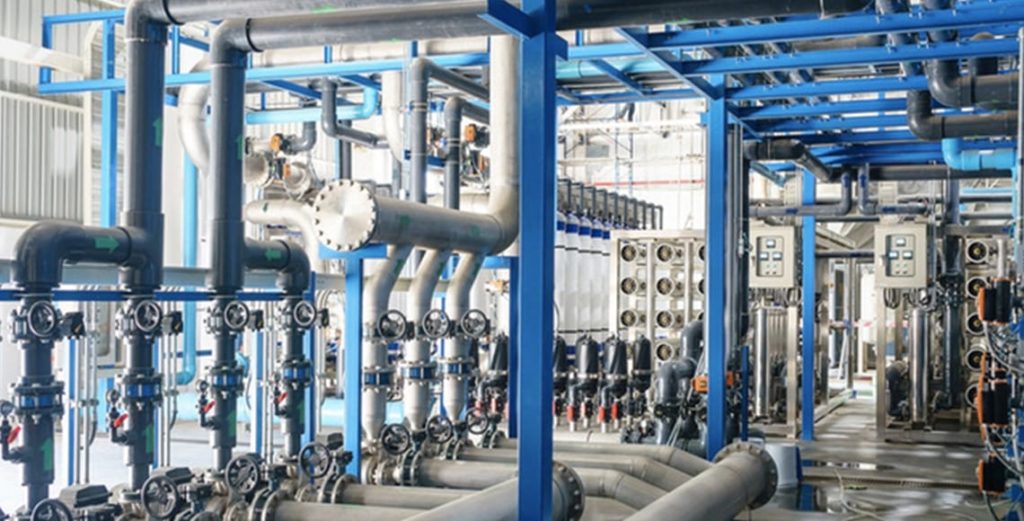
[vc_row][vc_column][vc_column_text]A job in water utilities can be as rewarding as it is challenging. After all, the sector is the authority that ensures the entire community has access to safe and potable water.
The benefits of working in water utilities include excellent pay, training, and travel opportunities. If you are an engineer, inspector, maintenance worker, or installation technician, your job may require a certain amount of fieldwork that will take you to remote areas that require long drives. You might also go into the city to people’s homes or businesses when repair, installation, and maintenance of water pipes and systems is required.
This field of work demands that you go where pipelines, pumps, motors, and other systems need monitoring. Regular trips to water plants for inspections and performance appraisals may be standard, and if your job requires taking water samples, you may find yourself at the rivers, lakes, and wells that connect with your water systems.
The mentioned opportunities for travel often mean visiting the multiple areas of your utility services. While long drives and trips to remote areas are not a deal breaker for most people, being on the road for hours does lead to some pretty uncomfortable situations, such as needing to pee or poop with the next rest stop still a few miles away.
Personal lavatory systems like Brief Relief offer the solution when water company workers find themselves too far from the nearest running toilet. Even if there’s a porta-potty in the area, many portable outhouses placed in remote areas often go unserviced for a long time. Rather than risk your health by entering a potentially toxic porta-potty, use a portable Waste Bag instead.[/vc_column_text][vc_column_text]
Brief Relief’s Disposable Urinal Bag and Disposa-John Portable Restroom allow utility workers to have a sanitary, easy-to-use and portable means to use the restroom, no matter where they are on the job.
The Disposable Urinal Bag allows workers to only need a short pit stop instead of creating a work stoppage. The Disposa-John patented “bag-in-bag” design, and multiple closures take care of both solid and liquid wastes. All Brief Relief wag bags contain polymers and enzymes that break down the wastes and convert them into a deodorized gel. And, because Brief Relief Waste Bags are made of nontoxic materials, they’re safe to throw away in any regular trash receptacle.
If every water company truck kept Brief Relief portable Waste Bags in their glove compartment, they would lower the risk of a worker speeding to the nearest rest stop. Each portable Waste Bag is fully equipped, stocked with ample toilet paper and antimicrobial wipes, so users can clean themselves thoroughly and disinfect their hands, eliminating the dangers of contaminating water samples with traces of feces.
The size of the utility depends on the population it serves. Whether you work in a small plant in an isolated area or in a massive facility that requires the coordinated efforts of multiple reservoirs, pipelines and treatment plants, personal lavatory systems are the solution for all workers who find themselves without access to a running toilet.[/vc_column_text][vc_separator][vc_column_text][/vc_column_text][/vc_column][/vc_row][vc_row][vc_column][vc_column_text]Check out our portable Waste Bags to see how Brief Relief is enhancing working conditions in the utility sector.[/vc_column_text][/vc_column][/vc_row]
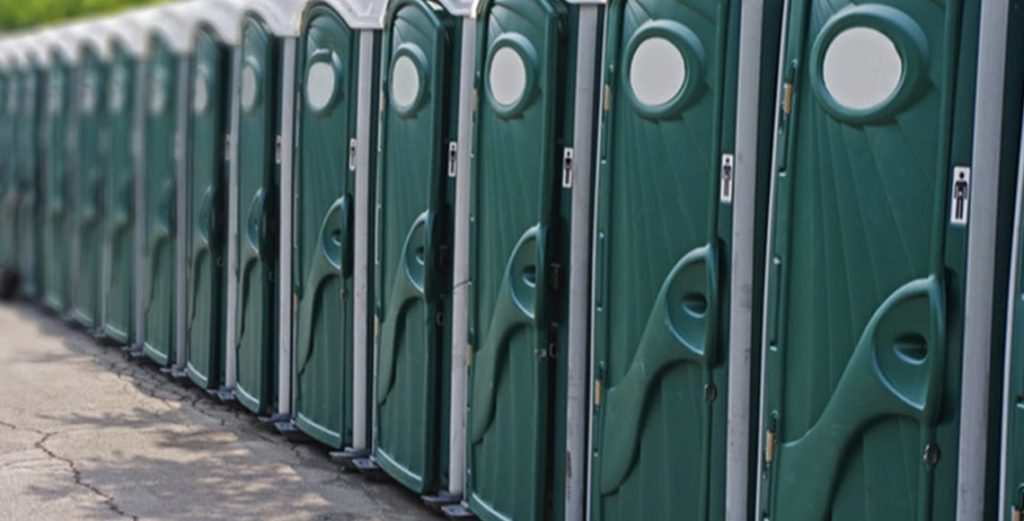
[vc_row][vc_column][vc_column_text]You’ll see porta-potties lined up at music festivals, concerts, food parks, sporting events, and anywhere else there is a large gathering of people and not enough toilet facilities on-site.
However, ask anyone who’s been to a concert or tailgate, and they will likely tell you that the most unpleasant part of their experience was having no choice but to use those portable outhouses that are often so putrid that they leave you gasping for air the moment you step out.
Fortunately, there’s a more sanitary and less stinky solution that doesn’t expose you to the same health hazards associated with porta-potties. Here’s a breakdown on why portable commodes beat the porta-potty in terms of hygiene, costs, setup, and maintenance.[/vc_column_text][vc_column_text]The Costs
Porta-potties boast a sturdy structure, which is probably the only advantage the porta-potty has over the privacy tent and commode personal lavatory system. Plus, their construction is also what makes them cost more.
On average, it costs $75 to $100 to rent a single porta-potty for one day. It also costs extra for a unit that has mirrors, purse shelves, and hand sanitizers. Events can end up paying thousands of dollars to accommodate the hundreds or thousands of people attending. The price only goes up from there if it’s a multi-day event such as a music festival or a fair.
The Brief Relief Lavatory System, on the other hand, only costs $240; it comes with a privacy tent, a commode with a full-sized seat, and enough supplies for ten people for one day. The tent and commode can be used every day for many years when cared for properly.[/vc_column_text][vc_separator][vc_column_text]Setup and Maintenance
Because of the height and weight of a standard porta-potty, they must be delivered on trucks. Some of the heavier ones even require a crane.
With the Brief Relief Lavatory System, all you need is to find a flat surface to set up the privacy tent. Place the commode inside, and it’s ready for use. People line the commode with a portable Waste Bag and do their business.
Servicing porta-potties is another story; it’s an unpleasant task and described as one of the worst jobs in the world. The reason porta-potties stink so bad is that the toilets sit on top of a giant bin that catches all the waste. The containers can hold gallons, and it’s typically only emptied when it’s close to overflowing. Once it’s filled, a crew comes in to stick a vacuum pipe into the bin and suck out its contents into a tanker truck for treatment and disposal.
With a Portable Lavatory System and Waste Bag, there’s minimal cleanup involved. People go in the bags, cinch them closed, seal and roll them up before throwing them away in the nearest trash bin.
There’s no mess, no spillage, and no smell. The polymers and enzymes in the wag bag turn the wastes into a deodorized gel, eliminating any residual odor. Each portable Waste Bag even comes with ample toilet paper and antimicrobial wipes.
Portable Lavatory Systems and Waste Bags are a cost-effective and more hygienic alternative to porta-potties, and any event attendee could probably count their blessings for not having to use porta-potty at their next event.[/vc_column_text][/vc_column][/vc_row][vc_row][vc_column][vc_column_text]Is your event still relying on porta-potties? Rethink restroom norms and check out Brief Relief’s Portable Lavatory Systems.[/vc_column_text][/vc_column][/vc_row]

[vc_row][vc_column][vc_column_text]The story of a fighter pilot who had no choice but to unstrap, stand on the ejection seat, squat, and defecate directly into his helmet bag may sound like an urban legend; however, do enough research, and you’ll discover fellow pilots who’ve heard the rumors and don’t doubt it’s true.
When you think about the demands of being a fighter pilot, the story doesn’t seem so far-fetched. As impressive as the cockpit of a modern fighter jet is with all its high-tech bells and whistles, the one thing it’s not equipped with is a lavatory. And when you think about how futuristic and expensive fighter pilot helmets are with their voice commands and night vision, it’s a shame to think that its bag was used to catch poop.
The urge to answer nature’s call can hit a fighter pilot when they least expect it; it doesn’t matter if they’re on a critical mission or a training flight. When the need to pee or poop occurs, they typically only have a couple of choices.
They can either “go” in their flight suits and face the later embarrassment. There’s a lot of clean up involved, including a thorough scrubbing of the seat cushion and, to save everyone the trouble and for sanitary reasons, the seat may even be simply discarded and replaced. It costs the government money.
Another option the pilot has if they’re airborne and need a bathroom is to turn around, land, and make a run for the nearest facilities. But what if you’re on a Navy jet and landing your aircraft requires reshuffling the other planes on the ship’s flight deck?
Landing your jet anytime you please at the base isn’t as easy as it sounds either as the Air Force monitor all launching and landing sessions. Therefore, landing the jet because the pilot has to use the facilities also costs the government money as it requires using up jet fuel and workforce to arrange the landing.[/vc_column_text][vc_column_text]
Personal and Portable Lavatory Systems for Fighter Jet Pilots
Portable Waste Bags are the most cost-effective and most sanitary solution for fighter jet pilots. With Brief Relief Disposable Urinal Bag and Disposa-John Portable Restroom, fighter jet pilots have a patented “bag-in-bag” solution that takes care of any solid or liquid waste.
Multiple enclosures seal the waste and odor while the enzymes and polymers break down the waste and convert it into a deodorized gel. Unlike peeing in a regular plastic bag or an air sickness bag, there’s no sloshing or spillage of liquids because the wastes have been solidified in a gel state.
Brief Relief bags have a 3-layer barrier bag system that makes it highly puncture-resistant. While there are challenges on using it mid-flight, it wouldn’t be any different to the pilot who unstrapped, pulled down his suit, and went in his helmet bag. The difference with using a wag bag is that the pilot won’t soil their government-issued uniform and equipment. They also don’t have to face the humiliation when they land and need to explain to fellow soldiers and their superior what happened.
Because wag bags are easily cinched closed, sealed, and rolled up, the pilot can store it away after use, and throw it away discreetly in a regular trash can once they’ve landed.
[/vc_column_text][vc_separator][vc_column_text]There’s never a time to be restroom-less with Brief Relief’s portable Waste Bags and Portable Restrooms, no matter what your job is.[/vc_column_text][/vc_column][/vc_row]
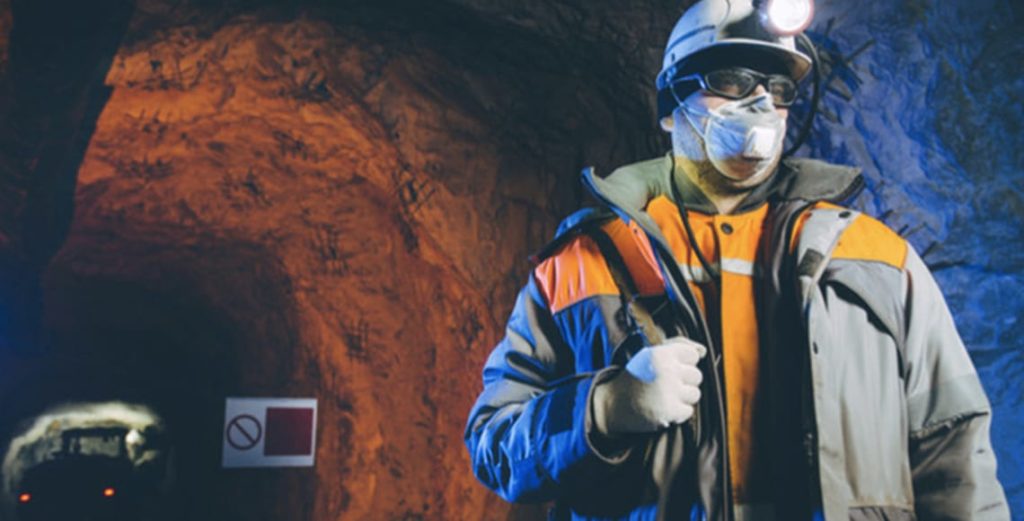
[vc_row][vc_column][vc_column_text]
A career in mining means experiencing some of the most challenging working conditions of any industry. Whether you’re a mining engineer, explorer, or the one patiently chipping away at rocks with a pickaxe, you will still find yourself navigating dark tunnels or being lowered down into bleak, poorly lit shafts.
The majority of people also don’t realize just how deep some mines are. Two out of the eight deepest mines in the world are located in Canada. One of these mines is Kidd Creek, a copper/zinc mine, that extends up to 2.9 km beneath the surface. The other, Creighton is a nickel mine that has a mining depth of 2.5 km.
Miners do the work few others in the world are willing to do. They take on the challenge of going into the deep and isolated spaces most people are too scared to enter. Each day, they expose themselves to physical dangers. The moment they enter a mine shaft to begin their day, they agree to give up the everyday comforts many of us take for granted.
One of those luxuries is access to a clean, running toilet. While mining companies have latrine options, some aren’t as accessible or as sanitary as they should be.
[/vc_column_text][vc_column_text]
Improving Productivity with Portable Lavatory Systems
Depending on where the miner is spending their day, it could be a long walk or an extended climb up to reach the designated toilet facilities. If the closest toilet is a 5-minute walk, the round trip to the bathroom takes 10 minutes, and this doesn’t include how much time the worker needs to do their business.
Some miners work 12-hour shifts. If they need to use the toilet twice a day, that’s about an hour lost to bathroom breaks each day or 20+ hours a month.
If mining companies equipped each of their miners with portable Waste Bags, the time lost to bathroom breaks could drop significantly. It would also be a relief for workers who prefer not to make the long journey to reach the porta potties. Knowing they have wag bags on-hand, they can focus on their work and productivity.
Brief Relief’s patented portable Waste Bags come with safe chemicals that convert waste into a deodorized gel that eliminates odors. The bags are easy to use and even easier to roll up and store in the miner’s sack. At the end of the day when the miners are back on the surface, they can throw away their used Waste Bags in any regular trash can.
Because working in the mines is one of the most challenging and impressive professions in the world, miners deserve a safe and dignified solution for their bathroom needs. With Brief Relief Disposable Urinal Bag and Disposa-John Portable Restroom, mine workers have a convenient, sanitary, and portable means of relieving themselves no matter where they are in the mines.
Brief Relief also offers easy-to-carry commodes that mining teams can bring with them everywhere in the mines. They work with all Brief Relief portable Waste Bags and come with a full-size soft foam toilet seat for added comfort.
[/vc_column_text][vc_separator][vc_column_text]
Mining can be a tough and time-consuming process, but using the bathroom shouldn’t be. Check out how Brief Relief’s portable Waste Bags and Portable Restrooms can make a difference in miners’ workdays.
[/vc_column_text][/vc_column][/vc_row]
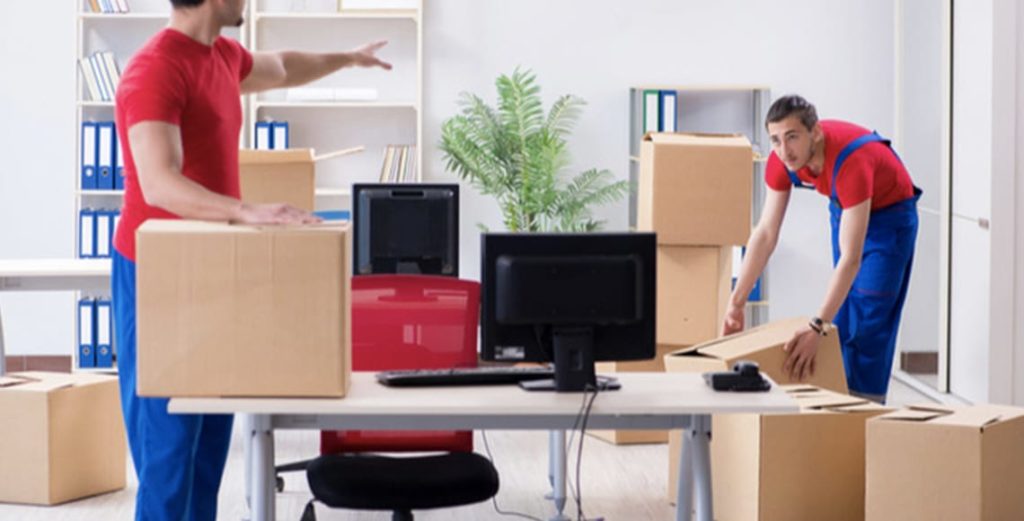
[vc_row][vc_column][vc_column_text]
A career as a mover means spending long hours packing clients’ goods, valuables, and belongings. It means a lot of unpacking, loading, and unloading. Depending on how much stuff the client needs to move, movers could be on the job a full day and back again the next.
Moving services also involve driving from one location to another. The trip from a customer’s old house to their new apartment could be anywhere from a few minutes to hours. If the client is moving states, movers may find themselves driving cross-country and on the road for days.
Whether it’s a short-distance or long-distance move, a single job can take hours or days. Therefore, it’s not surprising that movers will at some point seek facilities to relieve themselves.
But what happens if the homeowner won’t allow the moving crew to use their bathroom? What if there’s no running toilet on-site? What if the next rest stop is miles away and you can no longer wait?
[/vc_column_text][vc_column_text]
Why Professional Movers Should Always Carry Personal Waste Bags
When people hire professional movers, there’s nothing in their contract that obliges them to allow the movers to use their bathrooms. Just as movers should never expect a tip, they also shouldn’t assume a client’s facilities are available for their use. Therefore, the absence of a working bathroom is something that experienced movers always prepare for.
Instead of demanding to use the clients’ facilities or practicing open defecation, which could get you in trouble with the law, movers can turn to a solution that even the military and first responders rely on – portable lavatory systems or personal Waste Bags. In the absence of a running toilet or one that’s hygienically acceptable, personal Waste Bags give movers an easy-to-use and sanitary option.
Movers should always keep wag bags in the vehicle’s glove compartment. When the need for one arises, they’re conveniently within reach. Brief Relief’s personal Waste Bags are safe, clean and easy to use. You simply open the bag, pull out the toilet paper and antimicrobial wipes, take aim at the polymers and enzymes inside, and do your business.
Thanks to the blend of nontoxic polymers and enzymes, solid and liquid wastes break down and convert into a deodorized gel. Once you’re done, you can throw the used toilet paper and wipes in the bag, seal it shut, roll it up, and throw it away in the nearest trash can.
As a professional moving company, you may want to consider equipping each moving truck with a Brief Relief Lavatory System; it comes with a portable tent where your people can use a personal Waste Bag in private. Brief Relief’s personal Waste Bags also work with commodes which are the size of a standard bucket, making them easy to store in the moving truck and ensuring they’re available anytime your moving team needs them.
[/vc_column_text][vc_separator][vc_column_text]
Check out our personal Waste Bags, commodes, and privacy tents to see how Brief Relief can enhance the quality of work for movers and packers.
[/vc_column_text][/vc_column][/vc_row]
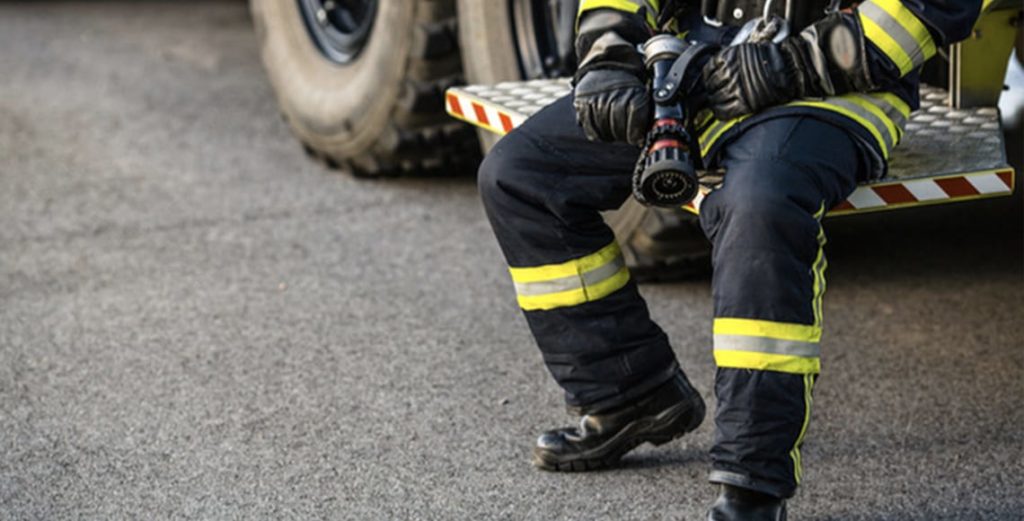
[vc_row][vc_column][vc_column_text]
Firefighters are no stranger to emergencies. The moment that alarm sounds off, firefighters are fully dressed and on the road in 3 minutes or less; some firefighters have demonstrated how they can put on bunker gear, which includes paints, gloves, jacket, boots, neck strap, and helmet with a chin strap, in a matter of seconds. They don’t hesitate or pause to ask questions about the emergency they’re responding to or where they are headed.
It isn’t until the moment they’re on the fire truck that firefighters get an idea of where they are going and how far away the fire is. While firefighters are training extensively in extinguishing hazardous fires, they’re also called for other emergencies such as search and rescue or clean-up of hazardous materials.
While on call, the adrenaline is often enough to distract firefighters and allow them to do their jobs without hesitation. However, once everyone is out of harm’s way and things have settled down, it’s not uncommon for firefighters to suddenly realize that despite their superhuman feeling, they can’t ignore the call of nature for long.
[/vc_column_text][vc_column_text]
How Wag Bags Can Improve Working Conditions for Firefighters
Where do firefighters relieve themselves when they’re on a run?
Some have awkwardly admitted to using the bathroom in the house or building where they’ve just extinguished a fire. You may have even seen those commercials advertising how adult diapers can save the day; however, any firefighter will tell you how impractical it is to wear diapers every day on the job, mainly since you never know if you’ll need them.
Portable Waste Bags are the most practical solution to the firefighters’ need for a sanitary and convenient option in the absence of an available toilet.
Portable Waste Bags allow firefighters to focus on their jobs while minimizing health and safety risks. It helps eliminate legal issues; while homeowners may be thankful their house was spared from a devastating fire, they may feel their personal space was violated when an outsider comes in and uses their private bathroom.
Brief Relief, the leader in personal lavatory systems, knows all about how inconsistent working conditions for emergency respondents can be and how the urge to pee or poop is just as unpredictable. The Brief Relief Liquid Waste Bag is a single-use, disposable urinal bag. Inside is a patented blend of polymers and enzymes that convert urine into a deodorized gel that’s approved for disposal in any garbage container.
The Disposa-John Portable Restroom will take care of any solid or liquid waste. It contains a patented “bag-in-bag” design and multiple closures that seal in the waste and odor while the enzymes and polymers work to break it down and convert it into a deodorized gel.
We believe firefighters and other first respondents are some of the bravest people on the planet. They deserve a sanitary and dignified solution when they’re out on the run and have no access to a running toilet.
[/vc_column_text][vc_separator][vc_column_text]
Firefighters and first respondents are our communities’ heroes, but they’re still human. Check out our portable Waste Bags for sanitary and convenient solutions for emergency providers on the run.
[/vc_column_text][/vc_column][/vc_row]

[vc_row][vc_column][vc_column_text]
People prone to airsickness are all too familiar with the barf bags found in the seat back pouch in front of them. After stowing their luggage away in the overhead compartment, sitting down, and securing their seatbelts, those plastic-lined baggies for vomit are probably the first thing they look for.
We don’t know why some people experience motion sickness while others don’t. Air sickness often hits people hardest during take-off, descent, and turbulence. They may feel woozy, sweaty, and queasiness in their stomachs. Nausea they experience is caused by repeated motions that cause conflict among the senses, resulting in dizziness that leads to vomiting. Just before they throw up, they may feel an overproduction of saliva in their mouth.
Knowing the science behind why you vomit when you experience air sickness may not stop you from throwing up; however, it does explain why commercial airlines are so keen on keeping puke out of sight and well-contained.
The reason your mouth starts to fill with saliva is that your body is preparing to purge all its contents; this includes undigested food and bile acids – the combination of all those stomach juices result in a smell so unpleasant it’s enough to cause a chain reaction that induces other passengers to start throwing up too.
Therefore, commercial airlines equip passengers with air sickness bags for everyone’s sake. It’s not just to save the passenger from the embarrassment of throwing up all over themselves or worse, in the aisle or on the person next to them. Vomit bags catch your puke, minimizing the spread of that pungent smell.
However, anyone who has been on a plane next to someone who has thrown up in one of those airline-issued air sickness bags will tell you that the smell still lingers.
[/vc_column_text][vc_column_text]
Improving Flight Experiences with Portable Waste Bags
The reality is that barf bags aren’t as effective as they should be because they’re made with nothing more than plastic-lined paper. They’re not leak- or spill-proof. You can even still hear the vomit sloshing around in there. Our personal Waste Bags, on the other hand, are durable waste bag systems that are puncture-resistant.
Brief Relief personal Waste Bags boast a triple-layer barrier bag design that contains a patented blend of polymers and enzymes that convert wastes, including vomit, into a deodorized gel. Our personal Waste Bags are approved for disposal in any garbage container, including the one you can find in the airplane’s lavatory.
The moment vomit hits the nontoxic polymers and enzymes inside the personal Waste Bag, it breaks down immediately and converts into a deodorized gel. Each Brief Relief personal Waste Bag even comes with toilet paper and antimicrobial wipes you can use to clean yourself with afterward. And unlike conventional vomit bags, Brief Relief personal Waste Bags are impact-resistance and survive drops from high heights.
[/vc_column_text][vc_separator][vc_column_text]
An uneasy stomach on a long flight can be an unpleasant experience for all passengers, check out our personal Waste Bags to see how Brief Relief can help commercial airlines.
[/vc_column_text][/vc_column][/vc_row]
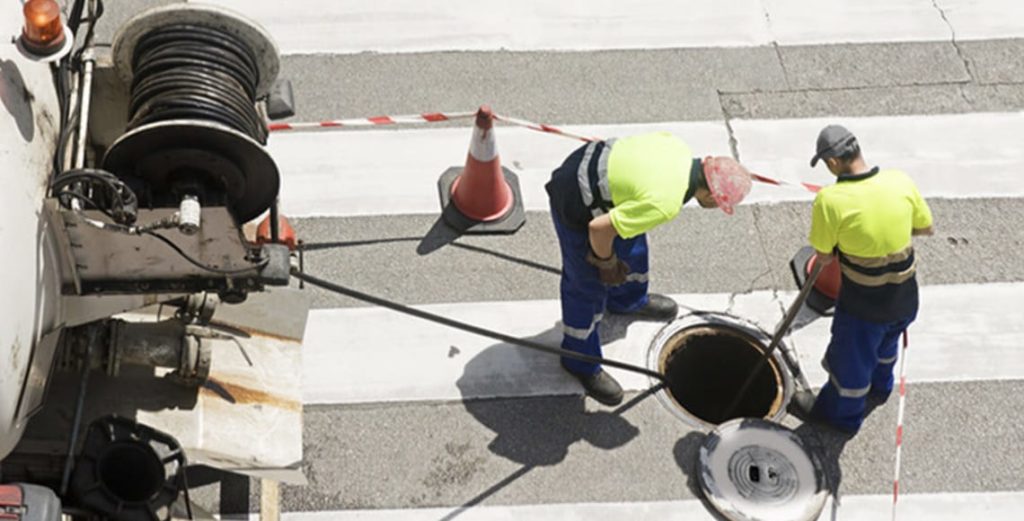
[vc_row][vc_column][vc_column_text]Many developed cities bury their utility lines underground to protect them from damage caused by extreme weather such as thunderstorms, high winds, and heavy snow. Securely maintaining lines and mains for telecommunications, fiber optics, cable television, natural gas, and water is also the best way to protect them from tampering by the public.
But while mains and lines located underground are less likely to become damaged and abused compared to lines that are above ground, they still need regular maintenance, repair, and upgrades. That means underground utility technicians need to work on these lines regularly to keep them up to code and working correctly.
Underground utility lines’ locations can be challenging. Workers find themselves working at unique job sites and in work environments that aren’t the most comfortable or accessible. Some workers go underground while others travel to a facility that may be hours away from the city. The different demands of working on underground utilities mean there are many situations where a properly functioning and running toilet is not always available. This puts a spotlight on what companies need to do to provide their workers with a safe, sanitary, and dignified way to use the bathroom while on the job.[/vc_column_text][vc_column_text]
While companies do their best to provide their workers with bathroom amenities such as port-a-potties, they’re often not accessible if the job is in an underground facility or it means laying pipe in a remote area. Working in this sector also involves working outdoors and could mean driving from one location to the next. Both scenarios also create challenges for fixed bathroom locations.
Portable Waste Bags are the underground utility sector’s answer to the problem of how to provide employees with a dignified way to relieve themselves on the job. The Portable Waste Bag’s goal is simple – to provide users with a convenient and sanitary portable toilet system when a running toilet is not available.
Because underground utility technicians can’t always get to a bathroom, the safe and sanitary alternative is a portable lavatory system like a Portable Waste Bag. With Brief Relief Disposable Urinal Bag and Disposa-John Portable Restroom, workers have a safe, clean, and easy-to-use means of peeing or pooping no matter where they are on the job when nature calls.
Portable Waste Bags also improve productivity. Companies lose time and money on bathroom breaks that take longer than they should. The costs are even higher for sectors such as underground utilities because of the time it takes a worker to find a running toilet in locations where one may be a few miles away. Portable Waste Bags allow workers to take shorter bathroom breaks because the bags are portable and can be used anywhere.[/vc_column_text][vc_separator][vc_column_text]
Brief Relief’s patented bags come with safe chemicals that treat waste. Brief Relief also offers portable commodes and privacy shelters, providing employees with a private bathroom that can easily pop up and be taken down wherever they need it.
[/vc_column_text][/vc_column][/vc_row][vc_row][vc_column][vc_column_text]
[/vc_column_text][/vc_column][/vc_row]
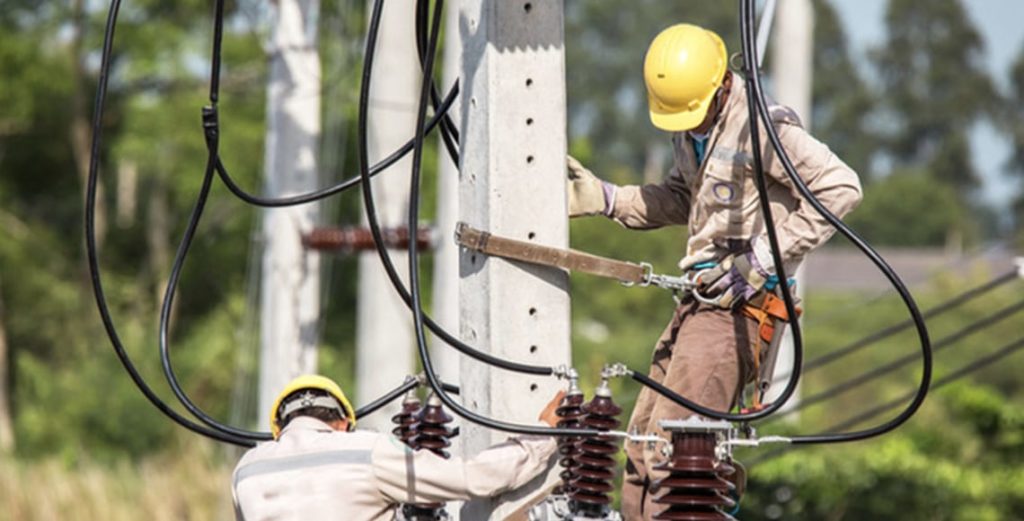
[vc_row][vc_column][vc_column_text]Working in natural gas, electrical, water, power, chemical treatments, and other sectors in utilities means working long uncomfortable hours in unappealing working environments.
Work environments in utilities can range from rural facilities to construction sites to underground tunnels. Utility worker’s jobs often involve repair. Occurrences such as damages caused by storms, extreme weather, and accidents can mean peaks in demand when workers least expect it.
Due to challenging environments and hard to access locations when working on utilities, it means not always having access to running toilets. Portable waste bags offer a simple solution to help enhance working conditions. Here’s how portable waste bags are changing the utility sector for the better:[/vc_column_text][vc_separator][vc_column_text]
The utility industry imports and exports its product to some degree. Working in utilities means transporting natural gas, electricity, and freshwater where driving from the rural-based facilities to the city could mean many long hours on the road.
Stopping every so often to find a working bathroom costs time and money as the delivery of the products may miss a crucial deadline or mean paying workers overtime. By keeping portable waste bags on all transport vehicles, employees have a convenient portable toilet solution that reduces downtime and keeps them on schedule.
While the odor of human waste alone can make you feel nauseous, it’s the potential transmission of viral and bacterial infections we have to worry about most. According to UNICEF, one gram of feces contains 10 million viruses, 1 million bacteria, and 1,000 parasite cysts.
Human excreta is a vector for bacterial diseases such as E-coli, salmonella, typhoid, cholera, and dysentery otherwise known as infectious diarrhea. Fecally-transmitted viral infections include rotavirus and hepatitis A. You will not feel the impact of coming into contact with the fecal matter until symptoms of the disease hit you.
Salmonella infection symptoms can develop within eight to 72 hours after ingesting contaminated water or food. You may develop abdominal cramps, fever, or diarrhea. We know that people suffering from diarrhea have very loose, watery stools. If they can’t control their bowel movements while at work and the bathrooms are too far away, they may relieve themselves somewhere else on the job site. Even if they try to clean it up, trace amounts will remain and could potentially make a coworker sick. And the cycle continues.
Fecal-oral transmission becomes a reality at job sites when workers also eat in the same area where someone has practiced open defecation. If a coworker is peeing or pooping away from designated bathrooms and doesn’t wash their hands afterward (or use a sanitary hand wipe) they could go back to work and contaminate everything they touch.
Hepatitis A is another virus found in infected feces. It can be transmitted in even the tiniest amounts, easily contaminating food and water. If someone with trace amounts of fecal matter on their hands were to touch a tool that many others throughout the day will use, the Hepatitis A virus could spread. While not everyone will have symptoms, those who do experience negative symptoms may suffer from diarrhea, vomiting, extreme lack of energy, or jaundice. It takes about 4 to 8 weeks to recover from Hepatitis A completely.
Exposed liquid and solid waste also attract flies and other insects, creating another oral-fecal route. The flies land on the feces, carrying disease-causing microbes with them and leaving them behind when they land on your hands or food. People end up unknowingly ingesting food with tiny, yet harmful, amounts of defecate matter.
The diseases that open defecation and human waste spread not only harms the health of your employees, but it also costs you money as productivity plummets whenever someone gets sick or refuses to work in an area that reeks of the stench of urine and feces.[/vc_column_text][vc_empty_space height=”25px”][vc_column_text]
People peeing in alleys, next to dumpsters, or behind a tree is more common than we care to admit. It happens in the city and on job sites. A job in utilities could mean being a solo operator is monitoring a small plant in a rural area or being one of the hundreds in one facility responsible for operating a massive system. You could feel the urge to go to the bathroom while on the road, at a construction site, or underground. All these scenarios mean minimal access to a running toilet.
In desperate times, people may turn to pee or pooping outside, thinking no one is looking. However, urinating in public is illegal and depending on the state and prosecutor, the act could classify as a public nuisance, disorderly conduct, or indecent exposure. Public urination and defecation could end up on public records and comes with a fine and in some cases, imprisonment.[/vc_column_text][vc_column_text]
Human waste hosts a multitude of disease-causing germs. Hepatitis A is just one of those viral infections that you can catch when you eat food or drink water that is contaminated with human feces.
An employee who doesn’t find a sanitary means to pee or poop at the job site might defecate anywhere. If workers don’t give their hands a good wash or use an antimicrobial wipe, they could pass the disease to their coworkers. Employees infected with Hepatitis A could be out sick for anywhere between a few days to several months. When the infection hits them, they could have symptoms that range from fever to vomiting to diarrhea to jaundice.
Portable Waste Bags give workers a safe and sanitary on-site facility. Portable Waste Bags are deployable anywhere and require no particular installation or servicing. They also help prevent environmental risks and hazards caused by people who practice open defecation.
Brief Relief, the leader in personal lavatory systems, believes those who work in utilities are vital, contributing members of our communities. Our Liquid and Solid Waste Bag systems solve the problem that workers in services encounter when they find themselves with no access to a running toilet.[/vc_column_text][/vc_column][/vc_row][vc_row][vc_column][vc_column_text]
[/vc_column_text][/vc_column][/vc_row]
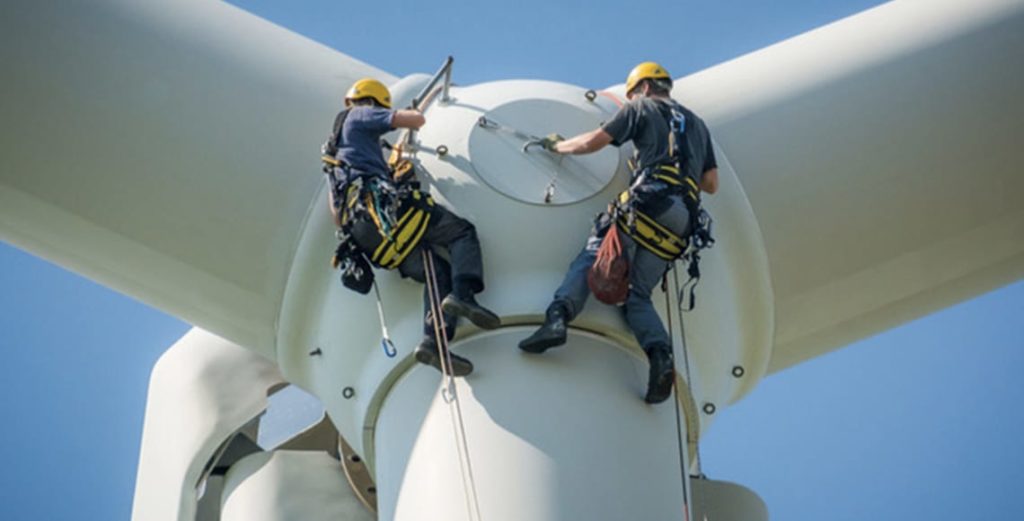
[vc_row][vc_column][vc_column_text]Factors such as age, bowel health, diet, and the presence of underlying conditions all play roles in determining how often we need to go to the bathroom. Therefore, no two people will have identical frequencies and timing when it comes to the need to relieve themselves. With that in mind, companies need to be fair when it comes to policies on restroom breaks in working environments.
If you deny your employees the right to go to the bathroom, your organization could face disciplinary measures. In 2014, the WaterSaver Faucet Co. found itself in court after their employees filed complaints against the company for their limitations on toilet breaks.
WaterSaver Faucet Co. was penalized because 19 of their employees were exceeding the allowable 30-minute per week bathroom break limit. The company’s bathroom policy allowed each employee only 6 minutes of bathroom time per day. The company installed a tracking system to monitor how much time each employee spent in the bathroom. They required employees to swipe their ID card to gain access to the bathroom. The company even offered $20 gift card incentives to workers who don’t use the restroom at all during their shift.
While this company’s bathroom policy may seem unfair, technically they didn’t break the law. According to OSHA, there is “no federal standard for the number of allowed restroom breaks or any specific restroom usage schedule exists.” Furthermore, OSHA states, “Any restrictions an employer implements on restroom access is monitored on a case-by-case basis.”
In the case of WaterSaver, the company’s strict bathroom policy was implemented after they discovered the 120 hours of production lost in one month due to the amount of time their employees spent in the bathroom.[/vc_column_text][vc_separator][vc_column_text]
WaterSaver isn’t the first organization to do the math and realize how much the breaks are costing their company. The average person needs to go to the bathroom six or seven times a day. Because of the amount of time we spend at work, it’s not uncommon for us to visit the toilet at least three times during our workday.
While the actual act of peeing or pooping only takes a few minutes, bathroom breaks have been known to take people away from their work for much longer than it should. Some bathrooms are a distance away; employees may need to walk the length of the hallway or go to another floor.
There’s also the issue of a queue if it’s an office where many workers share only a few bathrooms. Of course, there’s also the issue of employees getting distracted and engaging in small talk with coworkers they bump into. Add the time it takes a person to reach the bathroom, wait their turn, do their business, walk back to their office or cubicle, and you could be looking at 10-15 minutes lost on one bathroom break. If a person takes three of these 10-15-minute bathroom breaks, that’s a total of 30-45 minutes in one day or 2½ to almost 4 hours a week.
If employees spend a minimum of 30 minutes each week in the bathroom, you could be looking at an average of $6,250 per employee lost over 50-weeks.[/vc_column_text][vc_empty_space height=”25px”][vc_column_text]
If bathroom breaks cost businesses located in office buildings this much, imagine the impact that restroom breaks have on sectors where toilets are not easily accessible. Industries such as construction, utility, solar, mining, electrical, and wind energy mean field work or working conditions that don’t have easy access to facilities.
Companies lose a lot of money in production not because workers take an unreasonable amount of time taking breaks, but because getting to the nearest restroom facility could mean walking for miles or climbing down hundreds of feet of stairs.
Wind turbine technicians climb hundreds of feet each day to inspect tower exteriors, repair equipment, collect turbine data, and perform routine maintenance. The turbine nacelles can be over 300-400 feet high, and the only way up is via a vertical metal ladder. The wind tech works inside the hub of the wind turbine rotor or dangles from a secure harness on a rope.
A typical day for a wind tech starts very early in the morning. The days are long and demanding as technicians need to climb the turbines multiple times a day. However, the need to go up and down is often related to the work itself – repairing gearboxes and blades, inspecting the borescope, testing electrical components, or changing out batteries.
The climb is so demanding that turbines typically have three platforms for workers to take a rest. Enough time is spent climbing up and down the turbines all day. Now imagine adding the time lost by going up and down when a tech has to go to the bathroom. One interruption means descending to the ground to reach a porta-potty and climbing back up a few hundred feet.
Some wind turbines have service lifts that can take the worker to the top in about 8 minutes. While a free climb takes 10 minutes, it can be exhausting. Naturally, the descent is much more comfortable and can take as little as 5 minutes. Together, the decline and the ascent take about 15 minutes. Add that to the time it takes to pee or poop, and that’s already a 20-minute bathroom break.
If a worker had to make a bathroom run three times a day, that’s an hour per day or 5 hours per week lost to restroom breaks. And if the average wage is $21.55 per hour, you’re losing approximately $5,172 a year due to toilet visits.
As demanding as wind turbine technician work is, people are flocking to become a part of this industry. According to the US Department of Labor’s Occupational Outlook Handbook. “Employment of wind turbine service technicians, also known as wind techs, is projected to grow 108 percent from 2014 to 2024, much faster than the average for all occupations.”
In order for the wind energy sector and industries with similar working conditions to thrive, they need to realize that incentivizing avoiding the bathroom is not a solution. In actuality, a company does more harm than good when you reward employees who ignore the urgency to go as holding it in can lead to all sorts of health complications.
Rather than limit the allotment of time workers are allowed to relieve themselves, companies should be looking at alternative lavatory solutions for wind techs, miners, construction workers, and other workers who lose valuable production time whenever they have to travel a long distance to the nearest bathroom.
[/vc_column_text][vc_separator][vc_column_text]Brief Relief, the leader in personal lavatory systems, did the math and discovered that many companies lose thousands of dollars per employee on bathroom breaks that take longer than they should due to the unavailability or inaccessibility of facilities at their location or job site.
Brief Relief solved this problem by providing a specially engineered portable Waste Bag solution that encapsulates liquid and solid waste. The Brief Relief Liquid Waste Bag and Disposa-John Portable Restroom are spill-proof, leak-proof, odorless, ultra light-weight, compact, sturdy, portable, and can be disposed in any trash receptacle.[/vc_column_text][/vc_column][/vc_row][vc_row][vc_column][vc_column_text]
[/vc_column_text][/vc_column][/vc_row]
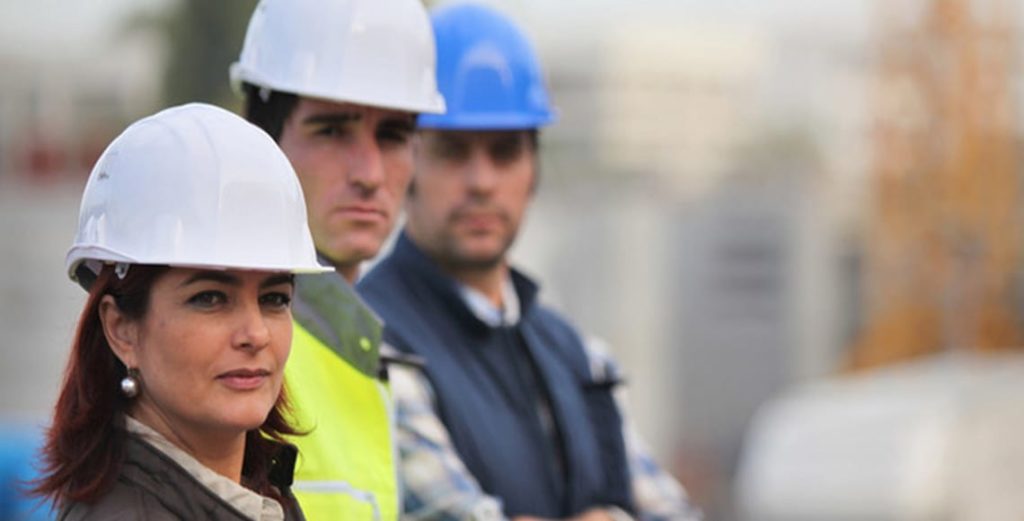
[vc_row][vc_column][vc_column_text]Not all work environments are created equal. While some people work in the comfort of an air-conditioned office and have access to clean bathrooms, others are on job sites where the nearest lavatory is dozens of feet below them, or an inconvenient distance away.
The Occupational Safety and Health Administration (OSHA) requires employers to provide workers with an adequate number of bathrooms for the size of the workforce. According to OSHA standards, “Employers with 20 or more employees must provide one toilet and one urinal per 40 workers. If an employer has 200 or more employees, one toilet and one urinal are required for every 50 employees.”
However, for some sectors, the problem isn’t about the number of available bathrooms but accessibility and how quickly workers can get to them. Working in industries such as construction, alternative energy, mining on solar farms, and on wind turbines often means running toilets aren’t always within reach.[/vc_column_text][vc_column_text]For most construction sites, portable restrooms are placed strategically away from driveways, walkways, or main roads. They’re typically kept away from high-traffic areas to keep them safe from oncoming trucks carrying materials. In addition, porta-potties also have to be placed on a level surface, so they stay stable. And because the portable restrooms are brought in by a truck, you need to find a spot that is accessible by the vehicle carrying them in and out.
Because of the many requirements of porta-potty placement, they often end up as far as 15 feet away from the main area where the construction takes place and where all the workers are. While the number of available restrooms is not an issue, reaching them can take a while; depending on where you work on the construction site.
Imagine how long it takes a worker who works on one of the higher floors or stands on the scaffolding has to travel to reach a porta potty. Each time a worker needs to pee or poop, they need to climb down and walk over to where all the portable restrooms are. Now, multiply their minutes by the number of workers on a job site. Those lost hours of productivity add up!
Unfortunately, some people decide they’re not going to make this journey and just hold it in – leading to UTIs and other health challenges. Often, workers get frustrated and simply openly defecate, by peeing or pooping in a bucket or a bottle. Sometimes it is behind a dumpster or in any corner of an unfinished floor. This causes a mess that someone has to clean up eventually, leading to even more unproductive hours![/vc_column_text][vc_separator][vc_column_text]
The stench of urine and feces alone is enough to drive most people away. However, because of the pressure on workers to get the job done, they may put up with it and continue to work, not to realize they’re putting their health at risk. Open defecation isn’t just an unsanitary and unsightly practice, but exposure to the human waste left behind can lead to some severe health problems.
While the odor of human waste alone can make you feel nauseous, it’s the potential transmission of viral and bacterial infections we have to worry about most. According to UNICEF, one gram of feces contains 10 million viruses, 1 million bacteria, and 1,000 parasite cysts.
Human excreta is a vector for bacterial diseases such as E-coli, salmonella, typhoid, cholera, and dysentery otherwise known as infectious diarrhea. Fecally-transmitted viral infections include rotavirus and hepatitis A. You will not feel the impact of coming into contact with the fecal matter until symptoms of the disease hit you.
Salmonella infection symptoms can develop within eight to 72 hours after ingesting contaminated water or food. You may develop abdominal cramps, fever, or diarrhea. We know that people suffering from diarrhea have very loose, watery stools. If they can’t control their bowel movements while at work and the bathrooms are too far away, they may relieve themselves somewhere else on the job site. Even if they try to clean it up, trace amounts will remain and could potentially make a coworker sick. And the cycle continues.
Fecal-oral transmission becomes a reality at job sites when workers also eat in the same area where someone has practiced open defecation. If a coworker is peeing or pooping away from designated bathrooms and doesn’t wash their hands afterward (or use a sanitary hand wipe) they could go back to work and contaminate everything they touch.
Hepatitis A is another virus found in infected feces. It can be transmitted in even the tiniest amounts, easily contaminating food and water. If someone with trace amounts of fecal matter on their hands were to touch a tool that many others throughout the day will use, the Hepatitis A virus could spread. While not everyone will have symptoms, those who do experience negative symptoms may suffer from diarrhea, vomiting, extreme lack of energy, or jaundice. It takes about 4 to 8 weeks to recover from Hepatitis A completely.
Exposed liquid and solid waste also attract flies and other insects, creating another oral-fecal route. The flies land on the feces, carrying disease-causing microbes with them and leaving them behind when they land on your hands or food. People end up unknowingly ingesting food with tiny, yet harmful, amounts of defecate matter.
The diseases that open defecation and human waste spread not only harms the health of your employees, but it also costs you money as productivity plummets whenever someone gets sick or refuses to work in an area that reeks of the stench of urine and feces.[/vc_column_text][vc_empty_space height=”25px”][vc_column_text]
Leadership should strive to inspire change in behavior and eradicate open defecation on job sites. It’s important not only to educate your workforce on the health risks linked to exposure to human waste but provide workers with a clean alternative to porta-potties.
Brief Relief Personal Lavatory Systems were designed with job sites prone to open defecation in mind. Knowing the realities of the practice, Brief Relief developed a safe and sanitary alternative when workers can’t get to a bathroom.
The Brief Relief Disposable Urinal Bag is a single-use, disposable urinal wag bag. Inside the sturdy plastic bag is a patented blend of polymers and enzymes that convert urine into a deodorized gel. It has a one-way valve that prevents accidents and spills. After use, snap it closed and store it away until you are able to properly dispose it into any trash receptacle. Brief Relief products come with antimicrobial wipes to disinfect your hands afterward and help stop the spread of disease.
The Brief Relief Disposa-John Portable Restroom is a triple barrier portable waste bag and liner for liquid and solid waste. It has multiple closures that seal in the waste and odor while the enzymes and polymers work to break it down and convert it into a deodorized gel. The Disposa-John works well with Brief Relief Portable Commodes, an excellent alternative to porta-potties and a much more portable solution.
Brief Relief helps minimize downtime and increase workers’ morale and productivity. It also helps eliminate health and safety risks on the jobsite, allowing workers to focus on their jobs.[/vc_column_text][/vc_column][/vc_row][vc_row][vc_column][vc_column_text]Check out our Personal Waste Bags and Portable Restrooms to find out yourself about Brief Relief’s health solutions and how they can benefit you in your workplace.[/vc_column_text][/vc_column][/vc_row]